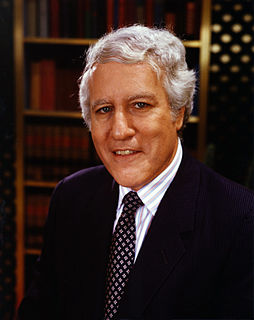A Quote by Adam Davidson
'Reinventing the Bazaar,' by John McMillan, is a great and fun introduction to the wild variety and importance of markets throughout history and around the world. I finally understood how a Middle Eastern souk actually works economically and how to compare that to modern-day telecom-spectrum auctions. I love that book.
Related Quotes
I get letters from two kinds of readers. History buffs, who love to read history and biography for fun, and then kids who want to be writers but who rarely come out and say so in their letters. You can tell by the questions they ask - How did you get your ?rst book published? How long do you spend on a book? So I guess those are the readers that I'm writing for - kids who enjoy that kind of book, because they're interested in history, in other people's lives, in what has happened in the world. I believe that they're the ones who are going to be the movers and shakers.
Part of my advantage is that my strength is economic forecasting, but that only works in free markets, when markets are smarter than people. That's how I started. I watched the stock market, how equities reacted to change in levels of economic activity, and I could understand how price signals worked and how to forecast them.
Throughout history, clothes represented who you were; they are a great vehicle for explaining who you are. During the Ching dynasty, for example, what you wore and how it was made reflected your status in society. People could literally read your clothes like a book, just by its color and how it was embroidered.
I have never understood the importance of having children memorize battle dates. It seems like such a waste of mental energy. Instead, we could teach them important subjects such as How the Mind Works, How to Handle Finances, How to Invest Money for Financial Security, How to be a Parent, How to Create Good Relationships, and How to Create and Maintain Self-Esteem and Self-Worth. Can you imagine what a whole generation of adults would be like if they had been taught these subjects in school along with their regular curriculum?
If you think about work, it's just this endlessly fascinating subject. We spend at least half of our waking hours working. So it becomes this incredible window into a whole variety of things: who we are human beings, how the economy works, how people relate to each other, how stuff is made, how the world spins on its axis.
































